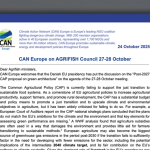In a world increasingly shaped by climate narratives, both true and false, empowering youth to discern and dismantle disinformation is no longer optional—it’s essential.
The CAN Europe Western Balkans Youth Climate Forum 2024 gathered over 50 passionate young changemakers from across the region to tackle one of the most pressing challenges of our time: climate and energy disinformation.
This year’s forum aimed to equip participants with the skills and knowledge to identify and counter misleading narratives, particularly those undermining the progress on a socially just energy transition and climate action. Representing countries in the Western Balkans with diverse energy realities, the young delegates came together, forming interdisciplinary teams to investigate, analyse, and present their findings on climate and energy disinformation affecting their communities.
Building Knowledge and Skills to Tackle Climate Disinformation
Through an intensive capacity-building programme led by CAN Europe experts, participants deepened their understanding of climate and energy policies in the region, the global climate regime and importance of international climate negotiations under the United Nations Framework Convention on Climate Change (UNFCCC), as well as the critical concepts of climate literacy and disinformation. They gained practical skills in identifying disinformation patterns and misleading narratives that can hinder progress towards the advancement of climate policies. Equipped with these new skills, each participating team tackled a unique challenge: to investigate a specific disinformation narrative, trace its origins, debunk its claims, and evaluate its influence on public perceptions of climate and energy policies in the Western Balkans.
The stakes were high— the team with the most impactful, evidence-based analysis and engaging presentation would win a study visit to Vienna, where some key international environmental, climate and energy stakeholders for the region are based.
Among the standout teams presenting their analysis to a jury of international climate experts were the “Sustainable Squad” (Albina Kastrati, Elio Rrapi, Hilda Hoti, Shkurte Musliu), and “Future Forward”( Bogdan Vukomanović. Danilo Arsić, Dušan Arsić, Klara Dragović) teams, who conducted in-depth investigations into coal-related disinformation in Kosovo and Serbia.
Their findings revealed how misleading narratives are obstructing support for renewable energy initiatives and hindering sustainable policy progress.
And The Winner is… Power Pals!
The team that rose above the rest was Power Pals, composed by Eleonora Jovanovikj and Maja Nikolikj from North Macedonia, and Ilija Franeta from Montenegro. Their submission impressed the jury with its thorough analysis and creative presentation on how disinformation distorts the perceptions of the use of gas in the region. By providing both clear debunking and practical recommendations for countering misleading messages, the team highlighted how gas is often portrayed as a cleaner alternative and a necessary step in the transition to renewable energy and revealed how this narrative, frequently promoted by fossil fuel corporations, serves to legitimise new investments in gas infrastructure across the Western Balkans.
From Learning to Leading: Power Pal’s study trip to Vienna
As the winners of the Western Balkans Youth Climate Forum 2024, the Power Pals were rewarded with an enriching three-day study trip to Vienna. This vibrant hub of international institutions offered the team an invaluable opportunity to connect with key CAN Europe partners and stakeholders, gaining first hand insights into the intersection of climate action, energy policy, and disinformation.
Their packed itinerary included high-level engagements with organisations contributing in shaping the region’s climate and energy landscape, as well as the media.
A Global Vision with Local Impact: The Power Pals’ Experience at the United Nations Environment Programme (UNEP), Vienna Office
The team was introduced to UNEP’s global efforts and work, as well as the environmental initiatives in the region, showcasing how the office collaborates with governments, civil society, and other stakeholders to support the tackling of pressing environmental challenges. UNEP experts provided an overview of their primary focus areas, including biodiversity protection, nature conservation and building climate resilience.
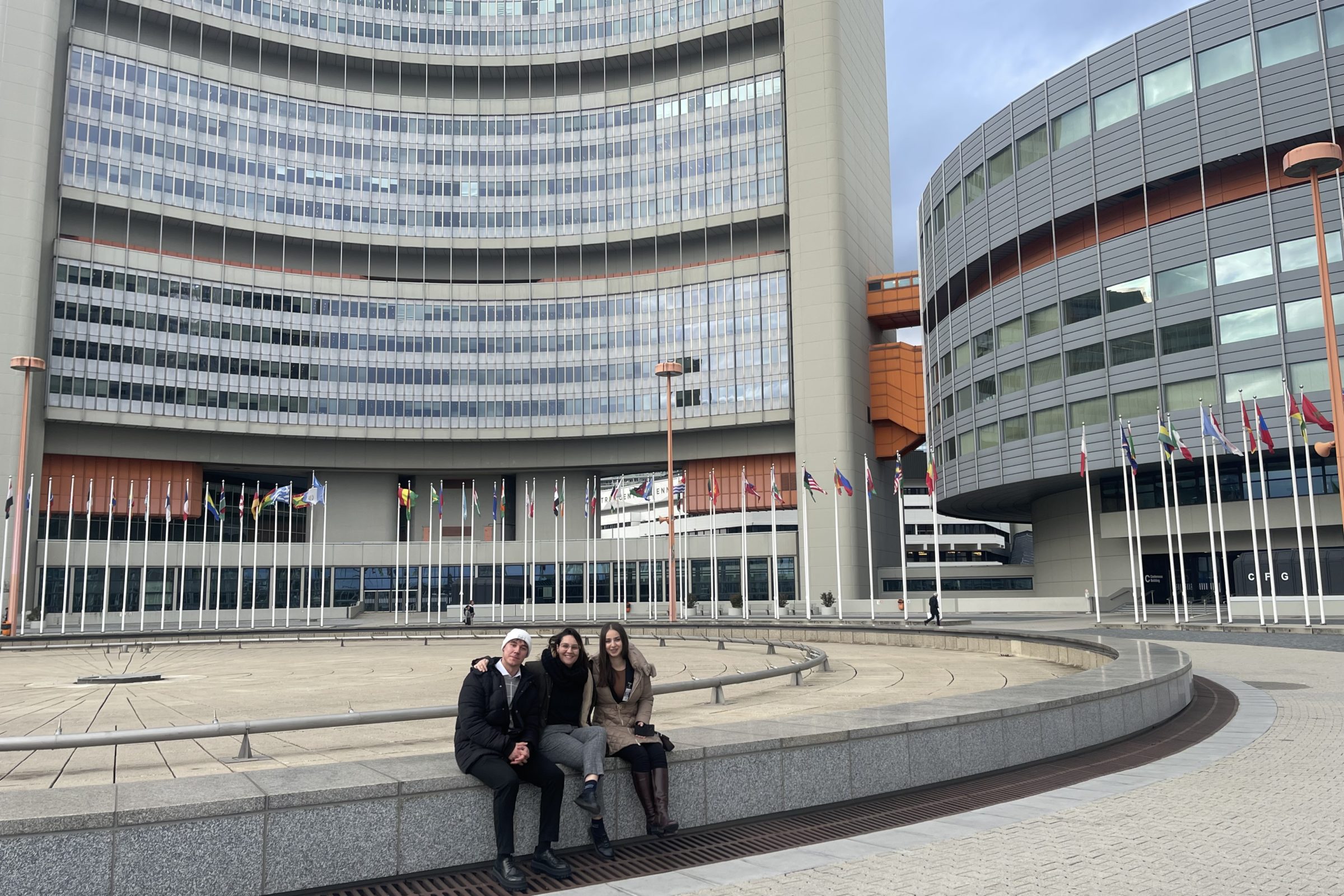
Deep Dive into Regional Energy Transition: The Power Pals’ Experience at the Energy Community Secretariat
One of the highlights of the Power Pals’ study trip to Vienna was their visit to the Energy Community Secretariat, where they took part in a dynamic “Office Hopping” activity. This unique, interactive experience allowed the team to engage directly with the organisation’s experts across various fields, gaining valuable insights into the critical role of the Energy Community in the Western Balkans region. During the activity, the team had the opportunity to ask in-depth questions about the Secretariat’s efforts to accelerate the energy transition in the Western Balkans, with topics ranging from renewable energy policies, electricity market integration, environmental compliance, long-term strategies for climate action and national energy and climate plans.
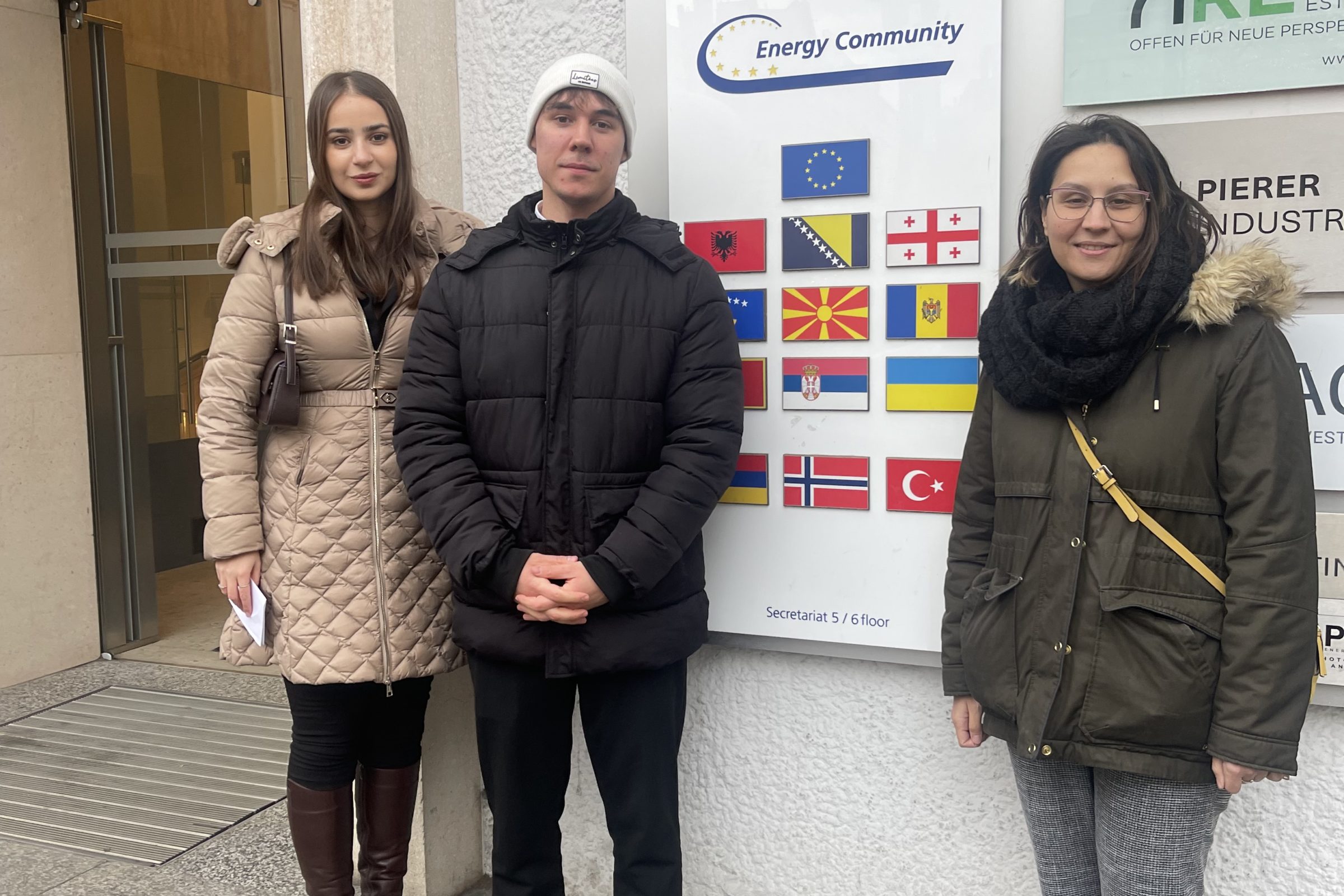
Media Integrity and Climate Action: The Power Pals’ Session with the OSCE Representative on Freedom of the Media (RFoM)
As the CAN Europe Climate Forum 2024 centred on addressing the spread of disinformation, the team had the opportunity to engage with the OSCE Representative on Freedom of the Media (RFoM). This session became a defining moment, highlighting the vital role media integrity plays in shaping public dialogue on climate issues. During the meeting, the team gained a deeper understanding of how media transparency and climate advocacy intersect, with a particular focus on how disinformation undermines public trust and weakens support for critical climate policies. A key aspect of the discussion revolved around combating misleading narratives that cast doubt on the urgency of climate action. The OSCE representatives equipped the young delegates with practical strategies for identifying and addressing disinformation. These included fostering partnerships between media outlets, civil society organisations, and fact-checking platforms to verify and debunk false claims effectively. This exchange reinforced the importance of collaborative efforts in safeguarding media integrity and promoting informed decision-making on climate action.
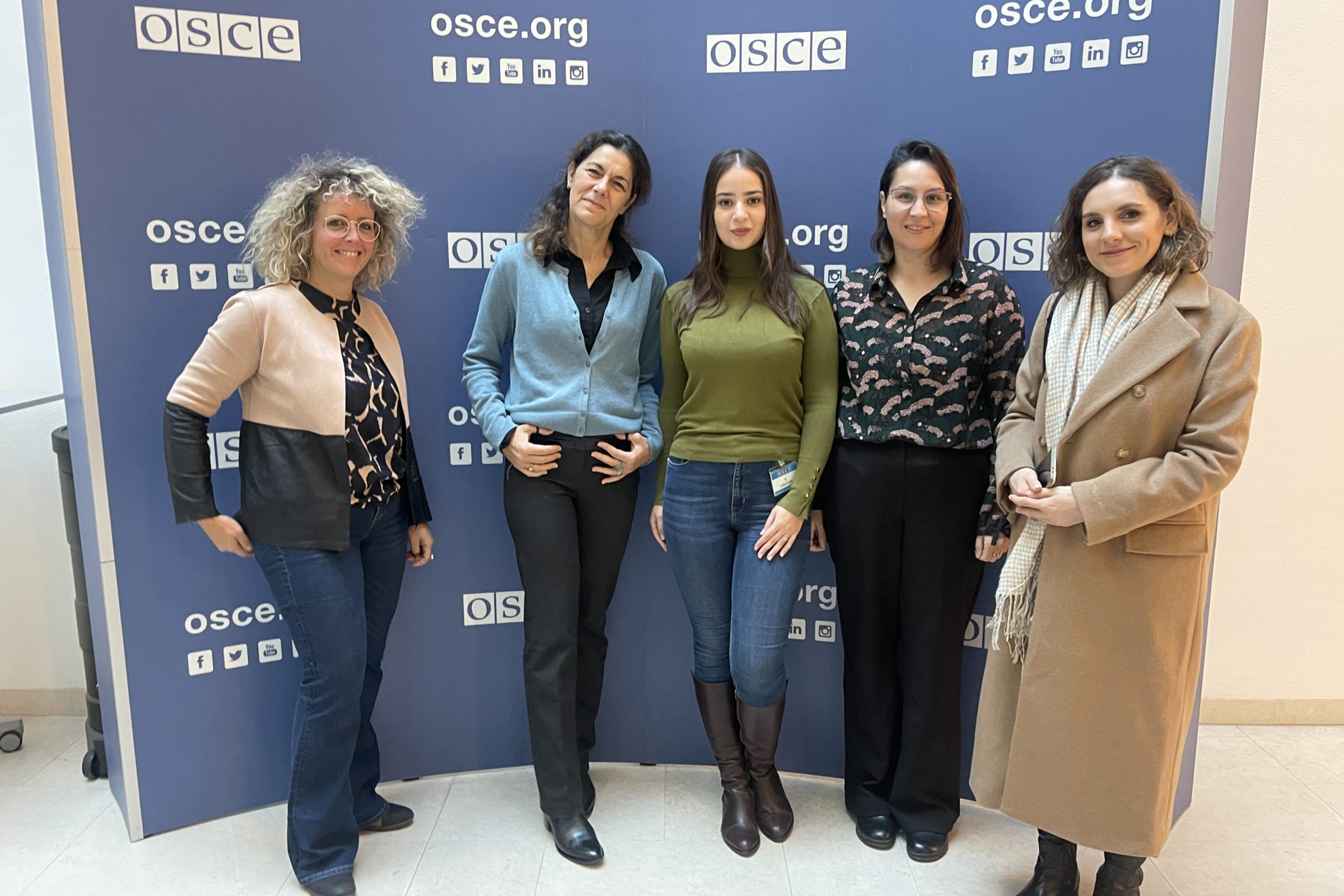
Last Station: Visit to the Environment Agency Austria
The final stop for the Power Pals team was the Environment Agency Austria , where they had the opportunity to meet some of their experts and familiarise with their work and the important role that the Agency plays in the shaping of science-based environmental policies and decisions. They also had the opportunity to hear more about the European Green Deal and how it affects the work of the EU member states environmental authorities, but more importantly of the Agency’s work on the Western Balkans Green Agenda under the EU4Green project. Far from being a traditional lecture, the session at the Agency was dynamic and engaging, encouraging interactive discussions, and giving enough space for the young delegates to present their views and be actively involved. This allowed the team to gain a deeper understanding of the Green Agenda for the Western Balkans—a strategic framework deriving from the European Green Deal and aimed at steering the region towards a sustainable and nature friendly economic growth, in alignment with the EU’s climate objectives.
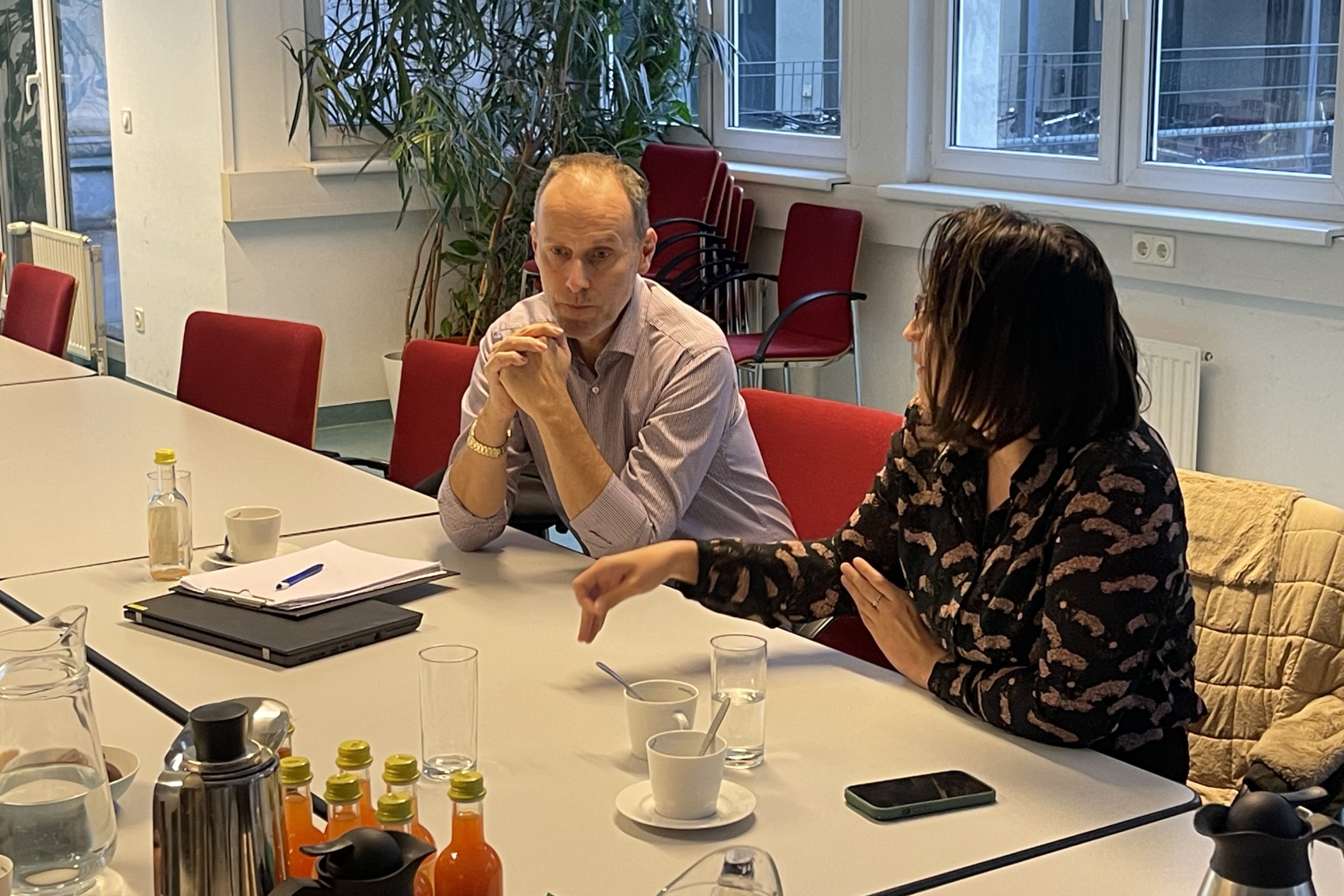
Overall, the CAN Europe Western Balkans Youth Climate Forum 2024 served as a transformative platform to provide young voices from across the region the space to actively shape the climate discourse. It was not only a chance for the youth to hone their skills, but also a vital opportunity for CAN Europe representatives to engage in meaningful dialogue with the next generation of climate advocates. For both the delegates and the CAN Europe team, this initiative proved to be a mutually beneficial learning experience. The event fostered collaboration and deepened understanding, creating a shared commitment to combating climate disinformation. By listening to the fresh perspectives of young people, CAN Europe reinforced its ongoing work in the region while inspiring the youth to engage and voice their demands for a really just and fair socio-economic transformation, in harmony with nature and benefits accessible to all.



